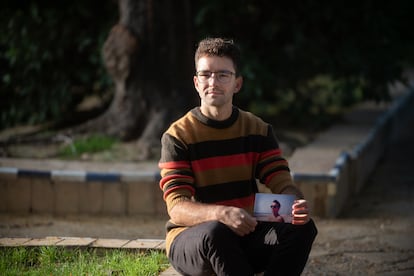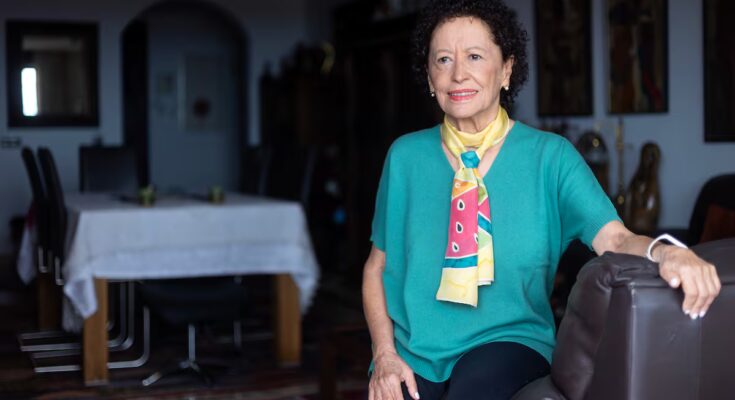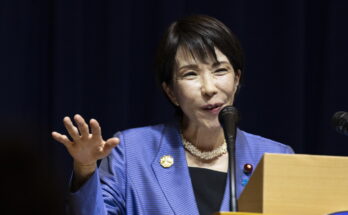“Why don’t they let me die the way I want to die?” This is the question that Dolores Barrero repeated to her son Lucas during the two and a half months that passed from when he asked for euthanasia until his death on February 18. It is very similar to what Gonzalo, Maxi, Marite or Laura – in their case, fictitious name – heard from their parents or partners. The euthanasia law came into force in June 2021, but Andalusia was one of the last to implement it, in January the following year. Since then, 300 requests have been received, of which 103 are services, 34.3% – this year, out of 91 requests, 22 have been made, 24%. In the case of palliative care, 18,000 people in the community receive it every year.
Their cases demonstrate, on the one hand, that in Andalusia Law 3/2021 which regulates the right to ask for and receive help in dying continues to not be applied correctly, due to ignorance of its content, lack of training of health workers and coordination by a health system with too many objectors, as denounced by the Right to Die with Dignity (DMD) association. The latest data on objectors dates back to 2024: 1,608 in total, of which 63.85% are general practitioners. “The percentage is very low, but because many do not bother to register due to lack of knowledge and because unexpected objections are allowed,” says Eva Camps, spokesperson for DMD, suspecting that there are many professionals who claim to be objectors and are not included in any list. On the other hand, the testimonies also demonstrate that the autonomous law on palliative care, which is the path openly supported by the government of Juan Manuel Moreno, is not applied correctly.
“My father’s case highlights that, today, it doesn’t matter what you leave written in your will, because at the moment of death you depend on a doctor, on what he believes in and whether he breaks the law or not”, summarizes Gonzalo Oses, regarding the ordeal that his father Pablo had to undergo, who was unable to have a dignified death and with which the rest of the people who shared their testimony with this newspaper agree.
Pablo Osés had drawn up his living will in 2019 and since he moved from San Sebastián to Fuengirola (Málaga) 25 years ago he has had the same family doctor. At the end of this month of August he entered the hospital with a lot of pain and a state of absolute weakness and there he had already made it clear that he did not want to return to any hospital and that he wanted to die at home. On September 11, Gonzalo visited the doctor who recognized that his father was terminal and told him to call 061 to request palliative care. Hours later, it was the doctor himself who visited his patient at home and assured his son that he was “stuporous” – a word he will remember for the rest of his life – that “he still didn’t have enough pain and that he didn’t recommend sedation”. Hours later, Pablo died without having received anything that could ease his suffering.
“I felt enormous frustration at not being able to help my father fulfill his last wish,” admits Gonzalo. That helplessness turned into anger and amazement when, days later, the same doctor admitted that he could never have ordered sedation because he was an objector. “The law on palliative care does not allow objections, this only applies to euthanasia or abortion,” says Camps. Laura also blames “medical fundamentalism, lack of humanity and failure to respect the law” for the needless agony that her partner, Luis – also a fictitious name – experienced in the last days of his life.
In March this year he was diagnosed with terminal cancer and at the end of June, after being hospitalized for two weeks, it was agreed with the hospital to discharge him and stay at home with palliative care. On July 24, health workers left him in a “preagonistic state and semi-conscious state”, but only administered subcutaneous medications while waiting to call the next day to reassess the situation. Luis died that morning. “They left us stranded. He died in pain, in unbearable pain,” he recalls. “We don’t want to die at home because we like to die like in the 16th century; we want to do it because we have a law on palliative care that guarantees us continuity of care until the end”, says Laura. He complained to the Andalusian Health Service, but only received a generic “we’re sorry, but we did the right thing”.
In the case of José González, Maxi’s father, not even his wish to die at home could come true. In August 2024 he was diagnosed with prostate, lung and carotid cancer. In January he was admitted to hospital. “He was suffering a lot psychologically, he had started to lose his strength, to stop eating and he had made it clear that he didn’t want to live like this,” says his son. Maxi asked the medical center if it was possible to activate the euthanasia procedure, but what they told him was that it was not his responsibility and that what he had to do was “go to the psychologist because he had anorexia and what he needed was to eat.” Maxi ignored him and activated the process, but also asked for the possibility of receiving palliative care: “They said no, because there was no pain, but nervousness.”
“Fight the SAS”

As usual in Andalusia, even with José the deadlines for exercising the right to die were not respected. The person who signed the document as the responsible doctor was the doctor on duty and two weeks passed until the GP showed up at his home, resetting the process counter. It was February and the doctor, who had accepted their request, warned them that the next step would take two months, because it was the first case he was dealing with. A few days later he had a severe episode of diarrhea. “I want to die at home,” his father told him, but at the insistence of the doctors they went to the Carmona hospital. There Maxi asked for euthanasia again, but the doctor said she was against it, even though she authorized palliative care. “He left from one day to the next, but after two months of psychological torture,” underlines José’s son.
As usual in Andalusia, the deadlines for exercising the right to die were not respected for Dolores, who since July 2021 had been living with multiple system atrophy, a rare disease similar to Parkinson’s, without treatment or drugs and with rapid progression. After having deactivated the process that same year, after having verified the obstacles that had been placed in her health center in Aracena (Huelva), where the family doctor had said that no one was trained and to ask again after the summer holidays, Dolores in mid-November 2024, after a year of palliative care and taking morphine, asked for euthanasia again. The decision in this case was the district representative, who is responsible for receiving all the paperwork sent by the responsible doctor, assembling the paperwork and transmitting it to the commission. “He was against euthanasia, he told me that what he would do was against the law of life. How can they appoint an objector responsible for supervising the euthanasia process?” Luca asks.
“Instead of spending the last two months of my mother’s life saying goodbye to her peacefully, I spent them fighting against the SAS due to the lack of training of the staff, so that she could carry out her will, simply by stopping suffering and having constant pain,” Lucas says helplessly. Marite Mehr also suffered from this lack of knowledge and coordination, when her husband Josef, with a living will, decided to ask for euthanasia last February, after four months of polyneuropathy to which a tremendously aggressive jaw tumor had been added.
There was no doctor on their private health insurance’s list of professionals who wanted to initiate the process, which, as Camps points out, they are obliged to do. It was DMD who found them a public health doctor in Ojén (Málaga), where they live, but the problem came with the attending doctor. “He had made an appointment for us in his office, but Josef couldn’t move. He said that his secretary would call us to make another appointment, but he died a day before calling us,” says Marité. His case, as Camps points out, shows another of the problems that professionals who participate in the euthanasia process warn against, a complex procedure that requires time that they do not have due to their saturated schedules.
“In public health, objection should not be allowed, it’s as if there were objectors in the Army. If it is allowed, the register should be public, so that patients can choose a doctor with all the information, or be aware of their limitations,” says Gonzalo.



